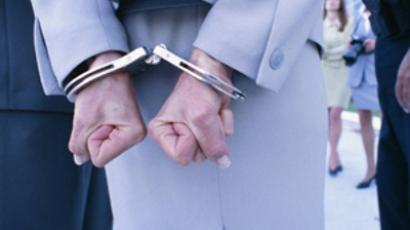Ukrainian nationalist politician’s toddler scolding sparks outrage
Since the presidential campaign ended, the issue of language has become divisive in Ukraine as Viktor Yanukovich is seen as a pro-Russian leader. Local nationalists want to protect their country from Russification.
A nationalist politician in Western Ukraine has sparked outrage after verbally attacking children at a nursery school simply for using the Russian form of their names. When Irina Farion, a politician from nationalist movement “Svoboda” visited a kindergarten in the city of Lvov on the Day of the Mother Tongue, she was keen to express her controversial views to impressionable ears. Farion was infuriated that some kids used the Russian versions of their names. And she was keen to hammer home her nationalistic message to the five-year olds.
One father of twins, who were at the receiving end of the politician’s anger, said that, while they did not really understand what was happening, his kids were still left upset.
“At first I thought they did not understand it,” Zelinsky told RT. “They did not talk about it. Then they started misbehaving and crying. They had trouble falling asleep, which is completely unlike them. I believe this woman’s aggressive approach to my kids was to blame.”
Rada deputy Vadim Kolesnichenko says the incident moves far beyond just upsetting children; he believes several laws were broken.
“It is a violation of Ukraine's criminal law on incitement of racial and ethnic hatred,” Kolesnichenko claimed. “It is a violation of a UN declaration on children's rights. Besides, she later commented that she did it on purpose, directly against children speaking Russian. That is why I turned this case to the Prosecutor General's office.”
It is no coincidence that the school incident took place in Western Ukraine, a region known for its strong nationalist moods. If anything, those beliefs have been stirred up by the recent election of President Viktor Yanukovich, as his perceived pro-Russian stance is deemed a threat to nationalistic ideals.
In Ukraine, agitation tents are usually associated with political campaigns, but even though the most recent presidential campaign is over, the Svoboda nationalist movement has decided to keep its presence in the Western Ukrainian city of Lvov.
Activists say they will do all they can to protect the Ukrainization policies of the previous leader Viktor Yushchenko.
“The new president Yanukovich wants to make Russian our second state language,” one of the activists said. “We don’t want the Russian language. This will wipe out our language. So we are here to protect it.”
In fact, after officially taking office as Ukraine's fourth president, Yanukovich said he would not make Russian a second state language. It was a big move, because he had actually used it as a campaign slogan and thus risks losing a large part of his support. Some observers have suggested that, because he is now in office, he does not want to risk irritating the nationalistic Western part of the country.
However, with the likes of Irina Farion willing to aggressively impose their political views on young children, Yanukovich may find it impossible to unite a nation dominated by nationalist ideology.














